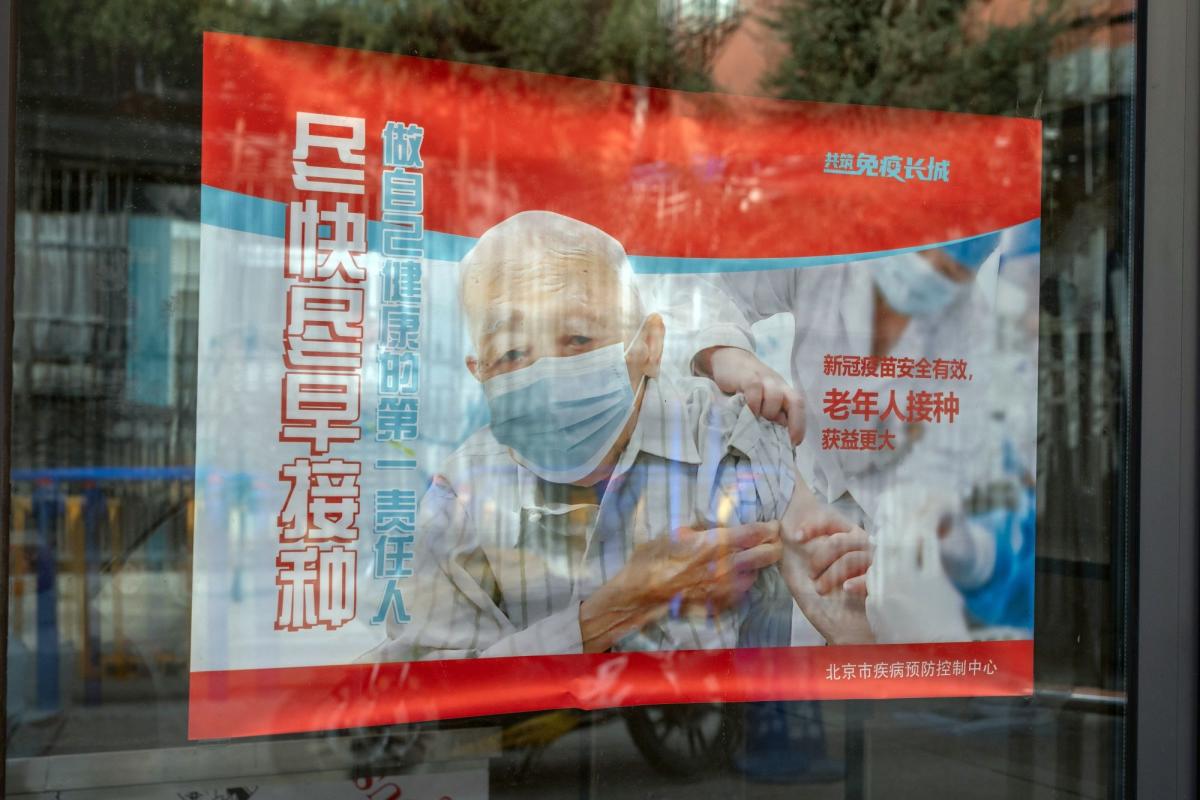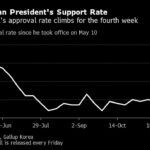
(Bloomberg) — Beijing’s rapidly spreading Covid outbreak has turned the Chinese capital of 22 million people into a virtual ghost town as stores close and restaurants empty, underscoring the cost of President Xi Jinping’s sudden pivot away from Covid Zero.
Most Read from Bloomberg
Bucking expectations for a managed and gradual transition, Xi’s government is now allowing the virus to run rampant. While officials have abandoned efforts to track case numbers, anecdotal evidence suggests entire families and offices in Beijing have become infected in the span of just days — a potential harbinger of worse things to come in other parts of China with less-developed health care systems.
China’s ‘Let It Rip’ Covid Approach Is Confounding Experts
Beijing residents are hunkering down at home, either because they’re scared of catching the virus or because they already have it. While many grocery stores are still open to provide essentials, delivery services for food and other goods are facing delays with workers out sick. The retrenchment suggests China’s economy is likely to get worse before the benefits of exiting Covid Zero start to kick in next year.
“My whole office is positive and down,” said one Beijing resident, a project manager named Emile, who asked not to identified by his full name. “It seems everyone in the city has a fever or headache. Beijing looks like a ghost town.”
This was the week that Covid-19 finally hit the world’s most populous country. Since early in the pandemic, President Xi Jinping’s playbook of swift lockdowns, mass testing and strict quarantines had largely managed to shut out the virus even as restrictions were largely dropped around the globe. But following major economic disruption and the most widespread protests in decades, China abruptly dropped nearly most curbs on Dec. 7.
Bare Shelves
Congestion in the city, which has the highest car registrations in the nation, fell to about a third of its level in January 2021 as of Tuesday, according Baidu data. Roads in Chongqing in the southwest and Zhengzhou in central China are also among the most empty in major cities, hinting at the severity of outbreaks.
Subway ridership in the capital over the past few weeks has also dropped at a faster pace than in other major cities, such as Shanghai and Guangzhou. The average daily number of passengers this week is near a low seen in the spring, when Beijing was partially locked down to contain an outbreak.
Early in this outbreak, some Beijing hospitals were filled with Covid patients. The city government said that on Sunday, clinics designated for treating fevers had 22,000 visits, 16 times more than a week earlier. Calls to an emergency hotline also surged, it said.
By midweek, that situation had eased, largely because officials opened more clinics and urged people with mild symptoms to stay home. On Wednesday evening, three facilities Bloomberg News visited were quiet and a fourth had about 15 people waiting to see a doctor. Four families were in the waiting room of a children’s facility.
China’s Covid Death Toll Could Near 1 Million, Study Shows
The children’s clinic was running short of staff because many doctors and nurses were down with Covid, said a medical aide, who only agreed to identify herself as Zheng due to the sensitivity of the topic. In her 60s, Zheng was also infected a week ago, developing mild symptoms such as aches, sore throat and loss of appetite. She carried on at the clinic because it was short of help.
A patient in her 50s at one clinic said her relatives and many of her friends had also tested positive, and were sharing Covid experiences and tips to stay well in phone calls and via social media. When the patient, who also asked not to be identified, developed breathing difficulties and was unable to get more medicine, she went to the hospital.
‘Hope I Catch It’
Infected or not, the abrupt change of policies has caught the country by surprise and many are frustrated after years of being told by China’s state media that Covid had to be stamped out by whatever means necessary. With the pathogen running rampant, the Communist Party is still insisting that Xi’s strategy will “stand the test of history” even as the president himself remains silent on the dramatic shift.
A Beijing resident between jobs in the hospitality industry, who declined to give her name, said the first two years of the zero-tolerance approach to Covid made sense and she was grateful to live in the city. But she said the government missed an opportunity to prepare for the day more people got ill.
Other people are now resigned to catching the disease and hoping for a return to some sort of normality.
“When I realized 11 out of my 13 colleagues are infected, my feelings were mixed,” said Alicia Wu, who works at a Beijing-based non-governmental organization. While Wu hasn’t caught Covid yet, she has had to take over a lot of her colleagues’ work.
“I actually hope I catch it this week because my work schedule is very full for the next two weeks,” she said.
China Cranks Up Propaganda Defending Xi as Covid Surges
But with a large and vulnerable elderly and under-vaccinated population, such attitudes mask the severity of what is hitting China this winter. Across the country, people are beginning to suspect that deaths are underreported or outright brushed aside. China has reported nine Covid deaths since October, when outbreaks began to gather pace in several major cities. Only two have been reported this month.
A Beijing businessman, who asked to be identified only by his surname Tian, said he believes his mother in Hebei province died of Covid at the end of last month, but the hospital didn’t attribute the death to Covid.
Tian himself tested positive on Saturday, so did most of the other members of his family in the past week. He said most of the people he knows in Beijing have also caught the virus.
“I don’t think we were fully prepared,” said Tian. “The change was literally too abrupt for local authorities and residents to handle.”
–With assistance from Shirley Zhao, Daniela Wei, Claire Che, Jing Li and Allen Wan.
Most Read from Bloomberg Businessweek
©2022 Bloomberg L.P.




